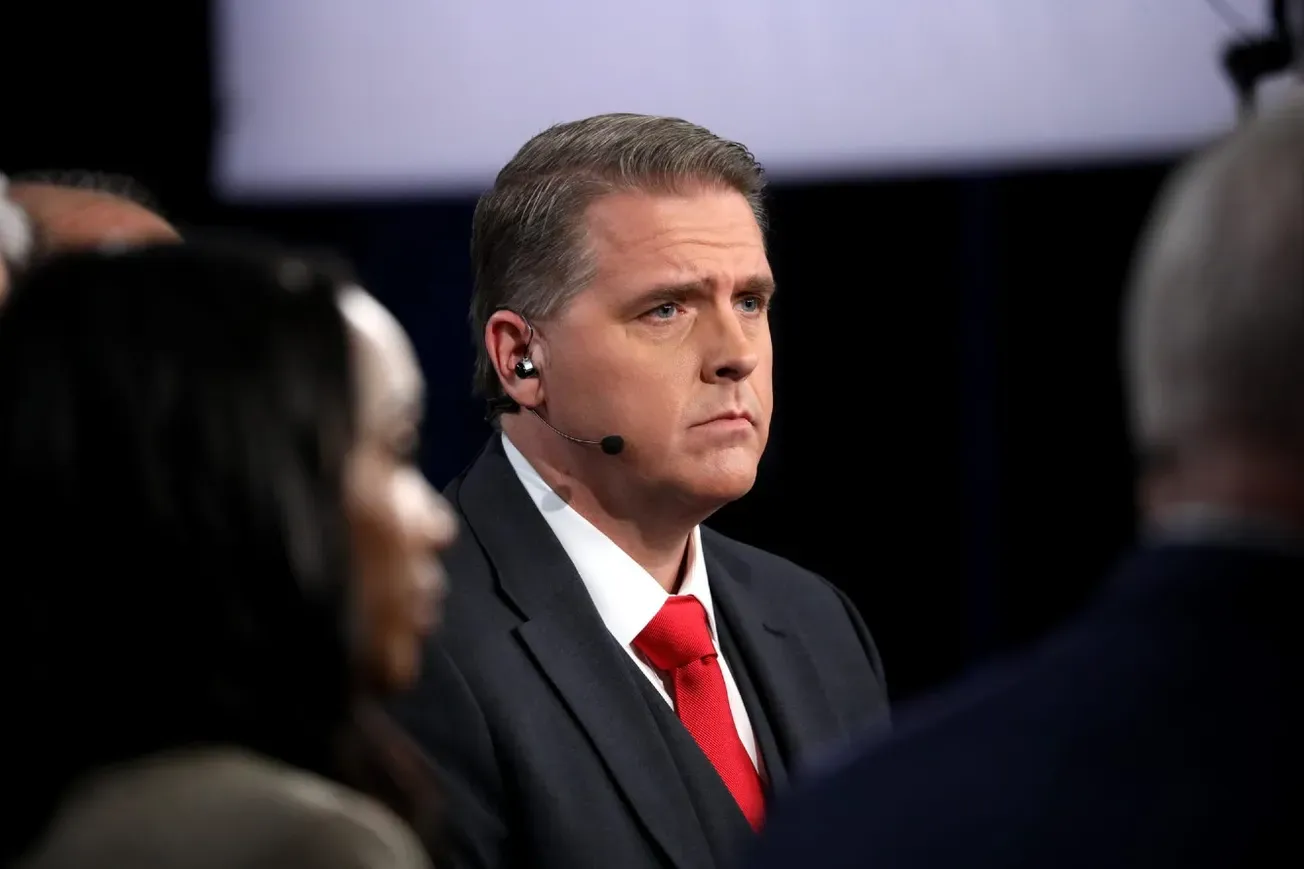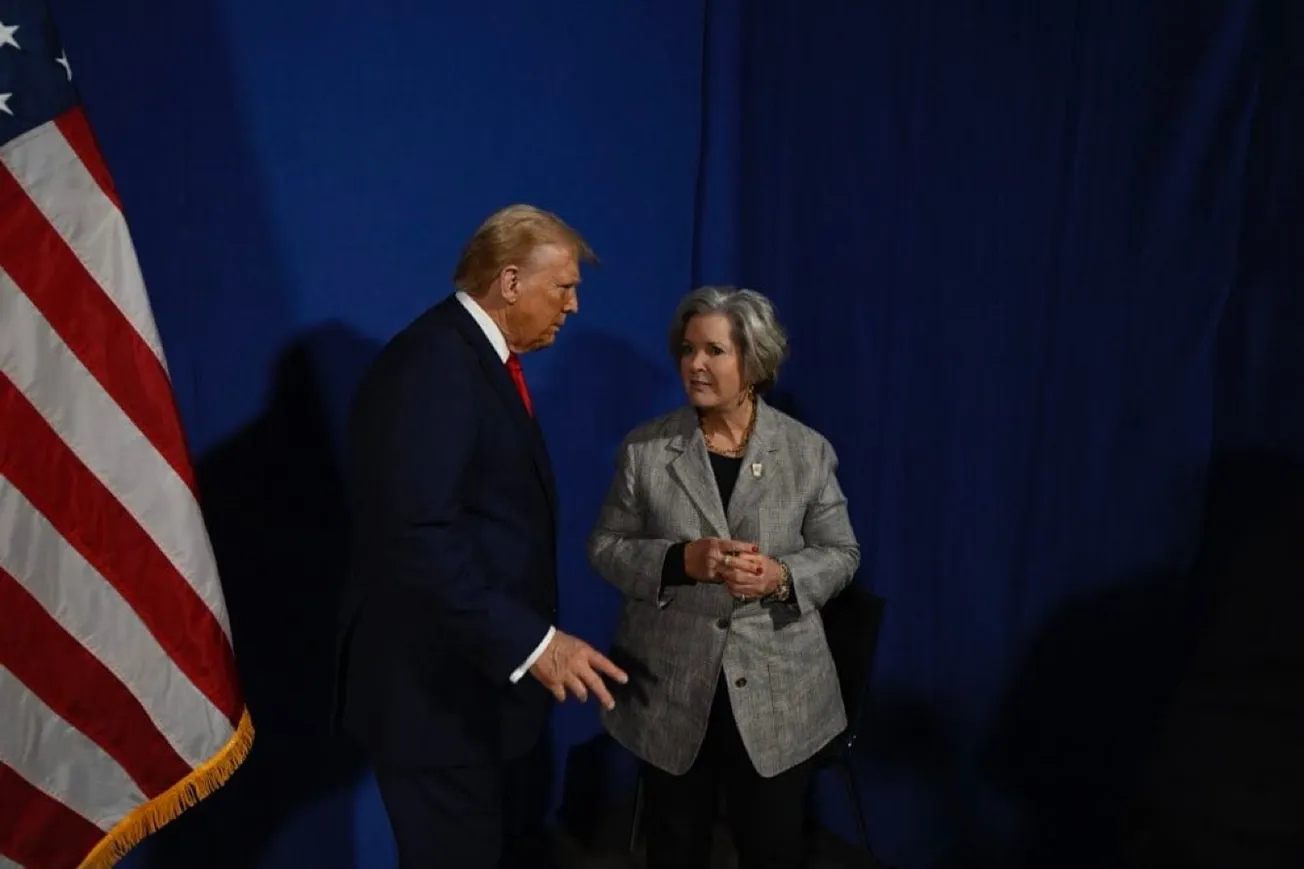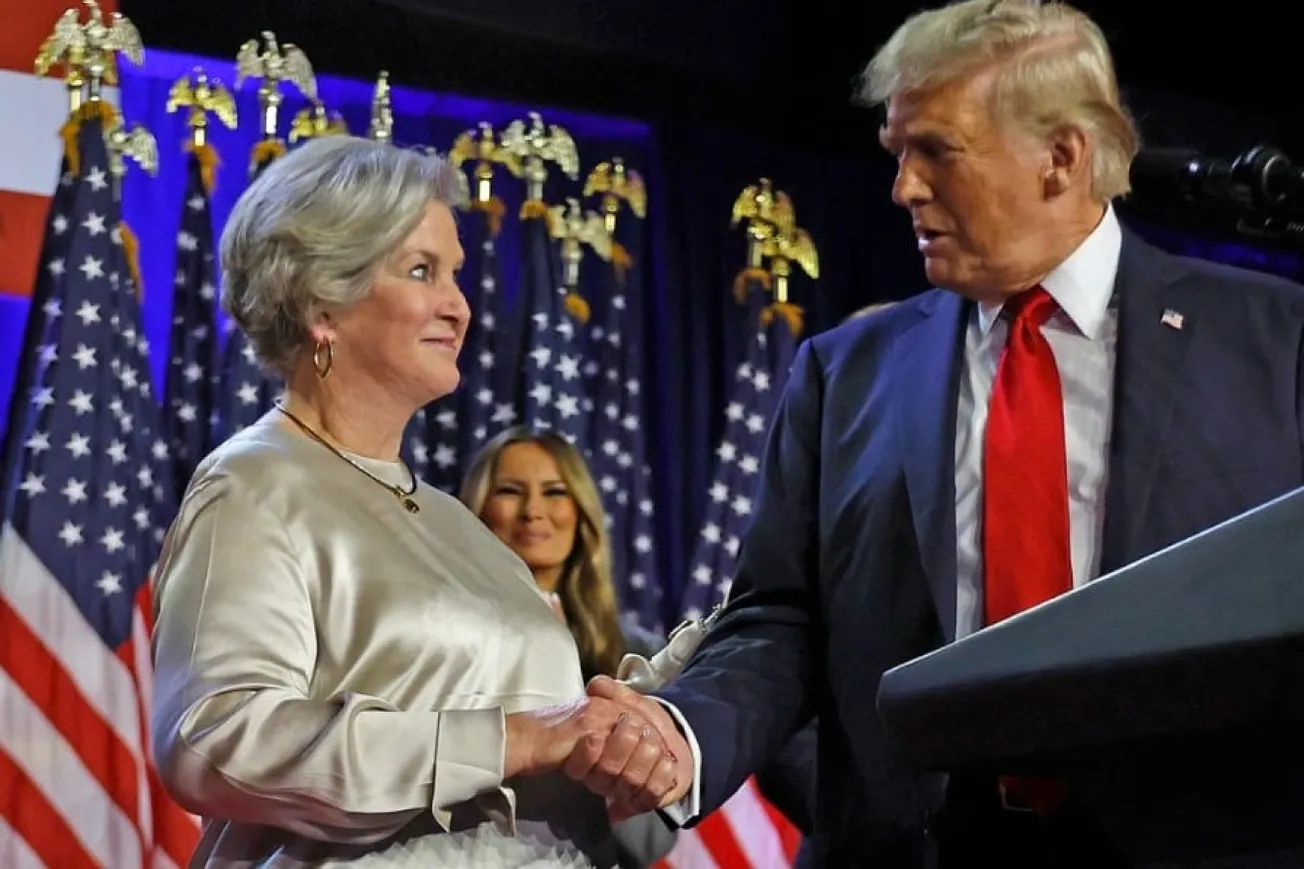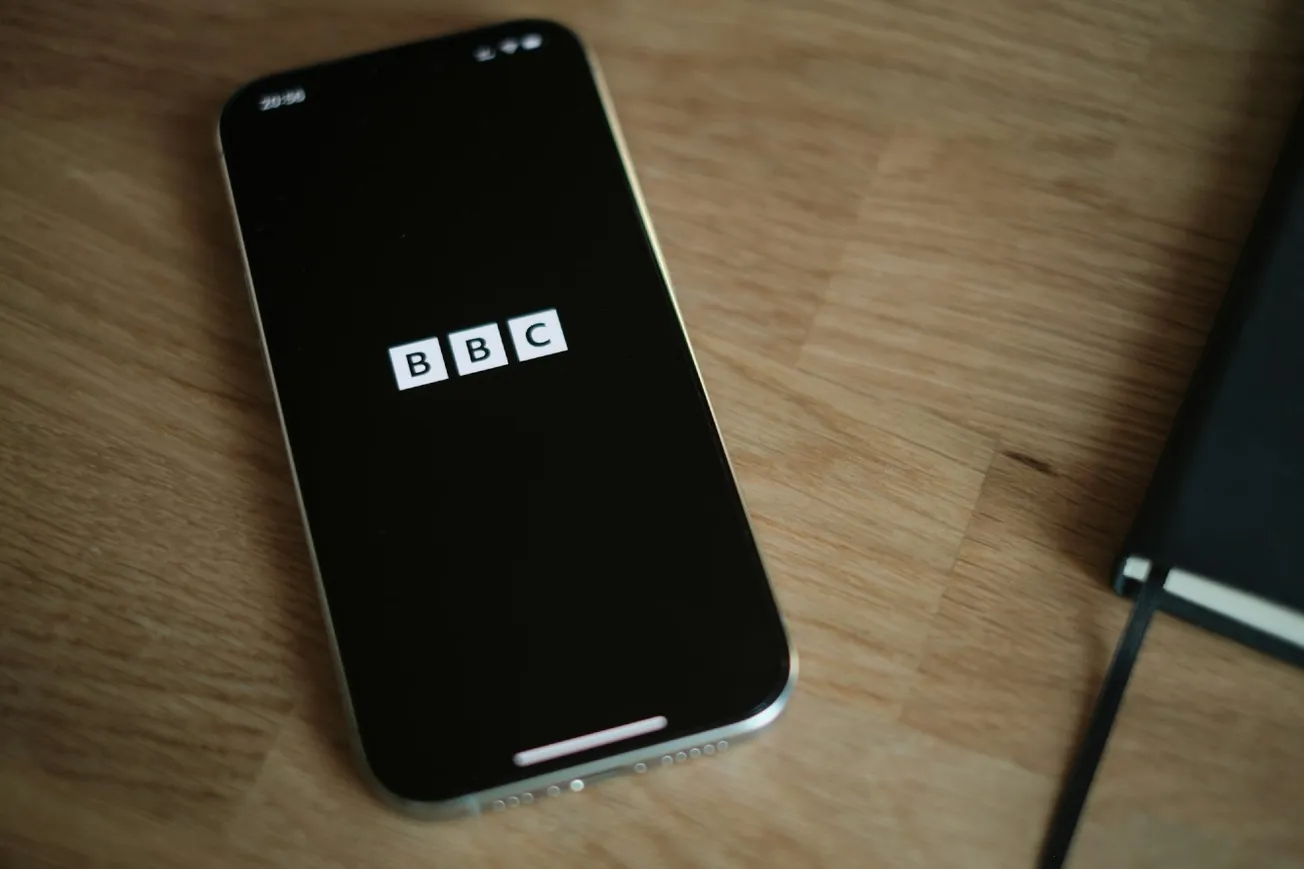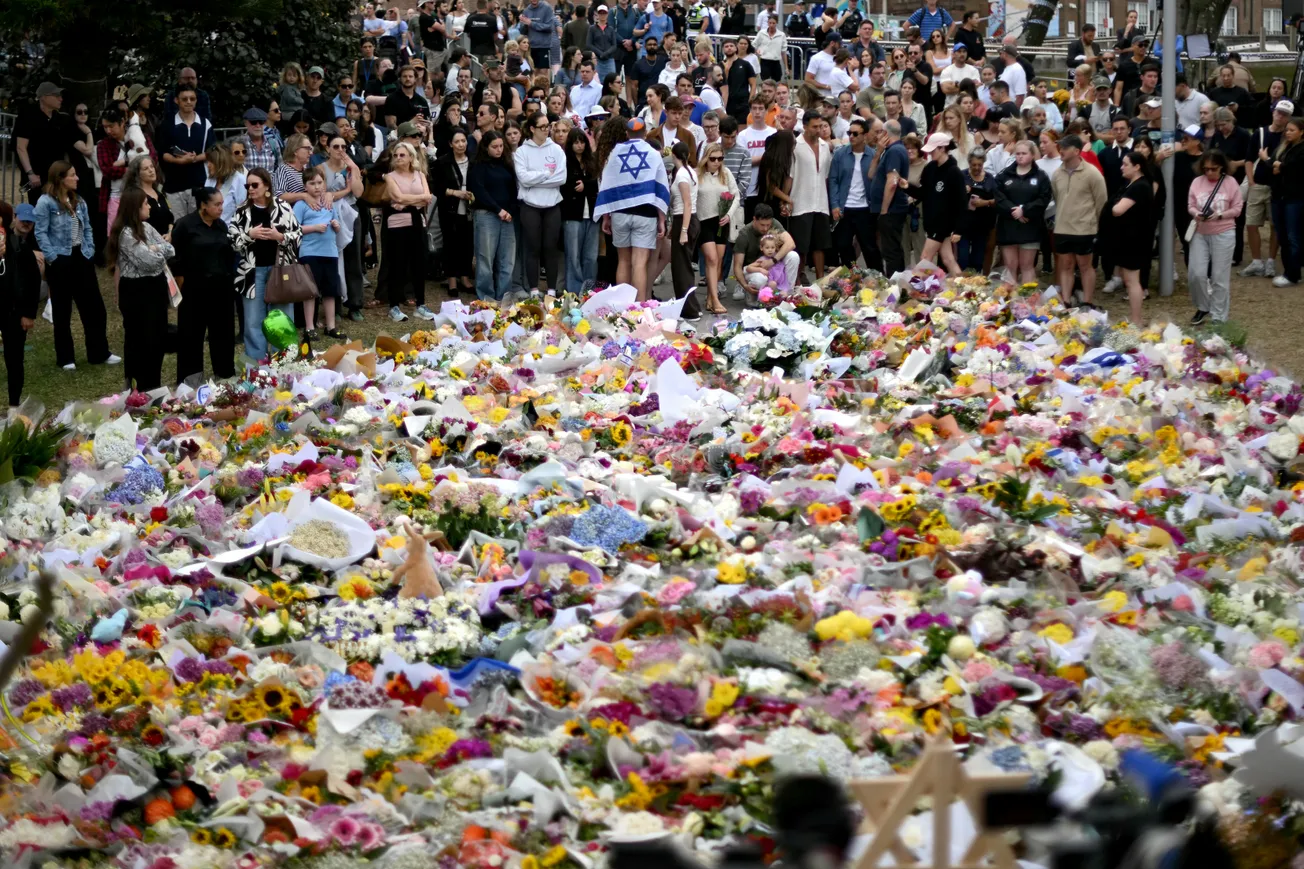By Robert McGreevy, Daily Caller News Foundation | January 14, 2025
Everybody loves a good heel. A heel — the professional wrestling term that describes the charming villain character — is the guy you just love to hate. His role in the grand pageantry of wrestling is to be the instigator. He’s there to rile up the crowd, inciting boos and jeers with his provocative persona.
On CNN, and to liberals everywhere, Scott Jennings is that heel.
The former GOP political operative has spent much of this millennium advising and working on campaigns (and in the White House) for some of the biggest names in Republican politics. But he grew up the son of a union worker, in the lone liberal bastion of a red state, born to a family that historically voted blue. These days he spends his time jousting with left-wing pundits on CNN.
Clips of him sparring with a roundtable of red-faced pundits, telling them the things they are saying are nutty, go viral on a daily basis. Despite fending off multiple agitated and sometimes outright hysterical opponents every night, Jennings does it all with a smile on his face.
“I think he relishes a role in challenging the overwhelmingly liberal audience,” Van Jones, a former adviser to President Barack Obama and Jennings’s fellow CNN commentator, told the Daily Caller.
“But he also understands television. The heel has to be more of a likable rascal than someone who’s just perceived as utterly evil. He knows how to dance that dance. It’s a rare gift.”
Jennings’ unique ability to disarm his opponents with a smile was on display in early January, when he provoked borderline tantrums from liberal dissenters. The subject was California’s devastating fires and the impact the state’s diversity, equity and inclusion (DEI) policies may have had on the disaster.
“We have DEI, we have budget cuts, and yet I’m wondering now, if your house is burning down, how much do you care what color the firefighters are?” Jennings asked the “News Night With Abby Phillip” panel.
The panel, also featuring Democratic Texas Rep. Jasmine Crockett and Stacey Plaskett, the U.S. Virgin Islands’ delegate to Congress, erupted into a cacophony of unintelligible crosstalk.
Cool Under Pressure
The uber-affable Jennings almost always presents his point of view with a sense of poise that’s rare in the increasingly inflammatory world of cable news punditry.
“Scott Jennings is better at this than I am because he doesn’t lose his temper as often,” said Hugh Hewitt, a former Reagan administration official and vaunted conservative radio commentator. The high praise from Hewitt included what appeared to be a passing of the torch, as he lauded Jennings as “the new Sheriff in town.”
Jennings’ tranquility has repeatedly flummoxed his sparring partners on CNN.
Also in early January, his pushback on CNN panelists’ disgust over Jan. 6 left them bewildered. Former Republican Illinois Rep. Adam Kinzinger, who has since left the party, threw his hands up in exasperation, hanging his head while quipping. “I was there man, so, just, I like, like,” Kinzinger sputtered before anchor Phillip had to cut him off.
“He makes it look so effortless, and it just makes, I think, the other side look so much more desperate,” longtime political operative Jonathan Felts opined.
Liberal pundits are not alone in their frustration with Jennings. The ire extends to the network’s fans as well.
“Everybody I know, when they come to me in the airport, they roll their eyes and put their hands on their hips and say, ‘how can you stand that Scott Jennings?'” Jones relayed. But he also indicated that his colleague’s affability and charm hedge against pure hatred.
“But what I notice about them is that they’re smiling when they’re saying it,” Jones said. “They feel exasperated, frustrated with him, but they don’t hate him.”
Scott’s Wonderful Life
Wrestlers in World Wrestling Entertainment (WWE) sometimes abandon the idea of playing a heel. Dwayne “The Rock” Johnson famously abandoned his role as a heel as recently as 2024 (much to the chagrin of the brand’s fans.)
But Scott Jennings isn’t playing a character. Or if he is, he’s playing George Bailey from “It’s A Wonderful Life.” Beloved by all who know him. A pillar in his community. The type of man to lend a helping hand to anybody who needs it.
“He prosecutes a case on air, but as soon as you get a commercial break, he’s asking about your family. He’s learning about your health. He’s as much of a human being to all the workers, the interns, the hairstylists, as you’re going to find anywhere in a man of America,” Jones said.
Felts can attest to Jennings’ decency.
Felts is a longtime and well-respected political operative who worked his way up to the height of American politics as White House political director during the George W. Bush presidency. But the first time he met Scott Jennings, he was simply a confused new White House staffer.
“You alright, man?” Jennings, fresh off guiding some staffers through a tour of the White House, asked Felts in 2004.
Felts got hired later than most of the other staffers. “In the White House, like everything else in politics … there’s no seminars. It’s sink or swim from day one,” he said.
Felts felt like he was out of his depth already, but he played it cool.
“Yes, I’m good,” he shot back. “Likewise?”
“Let me guess, no one’s told you anything?” Jennings, then working as the executive director for “Bush-Cheney for President New Mexico,” accurately predicted.
“He started laughing, put his arm around me, swiped my bag and said, ‘Well, come on back to the office,'” Felts recalled. Jennings gave him a 17-minute tour of the White House. Thus began a lifelong friendship between the two.
While Jennings has worked at CNN since 2017, his star has really been burning bright as of late. He attributes this to a combination of the nature of election cycles, as well as the 10:00 p.m. panel show, “News Night With Abby Phillip,” where he often stands in as the right-of-center punching bag.
“With this 10 o’clock show that we’re doing, the Abby show, it’s really convenient for me to excel,” Jennings told the Caller.
The format opens the door for what fellow Republican CNN pundit Shermichael Singleton told the Caller is just “Scotty being Scotty.”
The Bluegrass State
Jennings’ path to prominence has taken him through the hallowed halls of GOP power. Before landing his CNN gig in 2017, he cut his teeth in Kentucky politics. He was a key part of two of Republican Kentucky Sen. Mitch McConnell’s reelection campaigns: communications director of the 2002 campaign and a senior communications advisor to the 2008 campaign.
A born and bred son of the Bluegrass State, Jennings attended the University of Louisville — fortuitously, on a scholarship named after his future boss, McConnell.
McConnell’s wife, former Transportation Secretary Elaine Chao, awarded Jennings his first scholarship.
“I have often said it was not Mitch McConnell that discovered Scott, but it was Elaine Chao,” Jennings’s father, Jeff, told The Messenger.
“I knew Scott would be a huge success the first time I interacted with him more than thirty years ago,” Chao told the Caller. “He’s one of the most affable, hardworking and open-minded guys you could ever come across. And I’m so proud that he’s chosen to apply his talents to provide a voice for so many across the country.”
While in college, Jennings worked a job as a broadcast journalist at WHAS, Louisville’s flagship radio station. His experience as a journalist still colors the way he approaches his job today.
“I have the heart of a journalist,” he told the Caller. “I enjoyed being a reporter. I learned a lot. It’s always informed how I’ve done every job, whether that’s in campaigns or at the White House or in my public relations firm. I’m always sort of doing the basic work of a journalist. What are the facts? What is honest? What do we know? What don’t we know?” he relayed.
But, perhaps even more than his experience in journalism, his roots in Kentucky politics have influenced his current career path.
“One of the things that is most unique about Scott is that he’s never lost that quintessential Kentucky mindset,” Josh Holmes, who served as McConnell’s chief of staff and worked with Jennings on the 2008 campaign, told the Caller.
Some argue that Jennings has had as much of an impact on Kentucky’s political scene as it has had on him.
“Growing up in Kentucky Republican Party politics was growing up in the shadow of Scott Jennings. From early on he was a phenom that rose all the way to the White House,” Jonathan Duke, a Kentucky native, Republican operative and Vice President of Deep Root Analytics, told the Caller.
Growing up in Western Kentucky, Jennings was at the forefront of the political realignment that saw union voters and working class Americans fleeing to the Republican Party as their jobs got shipped overseas and the Democratic Party zeroed in on political correctness.
Jennings, Duke said, “is tailor made for this moment when the GOP has finally achieved becoming the party of the ‘working man.’ And he’s made CNN so much more bearable to watch.”
Scott Jennings reacts to Democratic strategist Julie Roginsky on CNN. [Image courtesy of Scott Jennings]
Holmes likened Kentucky’s political scene to a stand-up comedy show, explaining that being entertaining is simply a prerequisite to success there.
Exemplary of that comedic element is the state’s annual “Fancy Farm Picnic,” which serves as the unofficial kickoff to the election season in Kentucky.
Duke called it an “opportunity for candidates to showcase their wit, humor, and ability to land piercing attacks all in under a few minutes.”
A who’s who of Kentucky politics waits their turn to make their speeches, cracking jokes to a customarily rowdy audience.
McConnell, Democratic Gov. Andy Beshear (who skipped the event in 2024), former Republican Attorney General Daniel Cameron and anyone else who wants to win the votes of Kentuckians do their best stand-up routine in the face of a loud and raucous crowd.
“Greg Stumbo is like the milk that you have in the back of your refrigerator,” Cameron joked about his opponent in the 2019 attorney general race. “This carton has been spoiling for over 30 years, and folks, when you open it up, it smells terrible.”
The event serves as a proving ground for Kentucky’s candidates to hone their wit and delivery.
“Frankly, it’s a great training ground for TV commentary,” Duke said. For Jennings, the training ground clearly paid off.
“He just sort of internalized all of that at a really young age and never lost it,” Holmes said, adding, “everything was funny, illuminating, interesting, quick.”
That quick wit, synonymous with Kentucky politics, has served Jennings well in his recurrent five-on-one CNN sparring matches.
“I say, we like being in a wolves’ den,” Singleton told the Caller. “This is like their Gladiator.”
Never Never-Trump
Jennings has remained steadfast in the face of constant liberal abuse, paving the way for assertions like the Washington Free Beacon’s that “Scott Jennings Makes CNN Watchable Again.”
Jennings is not the first Bush White House veteran to make a name for himself in the media, but he’s one of the few that’s done so on a model not explicitly built on bashing President-elect Donald Trump.
Bill Kristol, Nicolle Wallace and Steve Schmidt, to name a few, have advanced media careers in recent years on a single platform of opposing Trump. Jennings, who hasn’t been afraid to criticize Trump in the past, took a different path. (RELATED: ‘I Say This With Regret’: Bill Kristol And James Carville Praise ‘Remarkable’ Trump Campaign)
“He made a decision, once Republican voters did, that while he did not come from the MAGA wing of the party, his job on TV was to explain and to articulate the mindset of Republican voters, who overwhelmingly supported Trump,” David Axelrod, former senior adviser to Barack Obama and frequent CNN co-panelist with Jennings, told the Caller.
“He can be a flamboyant, joyful, ‘Own the Libs’ provocateur at times, and he has gotten a lot of attention for it. He also brings the perspective of a couple of decades in politics and government,” Axelrod noted.
Jennings reserves the right to criticize Trump, but on a panel full of Trump-bashing lefties, he’s often the only one available to provide pushback.
“Look, I’m a commentator. I get paid to give my authentic opinion. And certainly, I don’t promise anyone anything,” Jennings told the Caller. “No politician is promised anything and no issue is destined for me to take one side or the other always.”
Jennings delights in keeping audiences, and his sparring partners, guessing.
“Part of what I’m doing is that you never quite know what Scott’s gonna say or how he might approach an issue,” he said. “Do you want to be the 10,000th person on TV to say the same thing, or do you want to be the first person to say your thing?”
Jennings has, at times, let Trump have it. He criticized the president-elect harshly when he blamed Trump for the events of Jan. 6, 2021, in a same-day CNN op-ed.
“President Donald Trump caused this insurrection with his lies and conspiracy theories about the election process being rigged against him,” Jennings wrote.
He has also come to the defense of Trump, and more notably, to the defense of Trump’s supporters. He’s able to thread that needle, he says, because of his dedication to conservative principles.
“I’ve been a Republican since I started voting in 1996 and it has never occurred to me, or even crossed my mind, that I wouldn’t be feeling like a Republican.”
There are obvious differences between Trump, McConnell and Bush. But, Jennings asserted, all of them are bound by a clear throughline.
“We’re the party that defends Western civilization. We’re the party that generally tries to adhere to common sense. We’re the party that respects cultural norms and values. We respect average everyday people. For as long as I’ve been in politics now, 25 years, that’s been sort of how I view the Republican Party. From that perspective, it’s no trouble at all for me to have proudly worked for George W. Bush, and in this election, and the last two voted for Donald Trump,” Jennings told the Caller.
Jennings, Singleton said, respects conservatism.
“He respects conservative orthodoxy, and he is going to defend and stand by individuals who are proponents of those things imperfect at times as those individuals may be,” Singleton added.
Trump’s governance may very well be a far departure to that of Jennings’ old bosses, but it is vastly preferable to the “uncommon nonsense” offered by the left, he professed.
“Can I be unhappy with Donald Trump on a Monday, and on Tuesday could I tell you that I would take him 100 times out of 100 over Kamala Harris? Of course.”
Some conservative columnists wrote that, to save conservatism, Republicans should vote for Kamala Harris. Jennings took issue with that.
“That was the biggest bunch of bullshit I ever heard in my life,” Jennings told the Caller.
“Honestly, that was their argument to save conservatism, to save the conservative movement, you had to elect Kamala Harris. Now that we’re a couple of months removed from the election, do you know how bat shit crazy that sounds to say out loud?”
He called the Never-Trump movement “the single biggest failed political project in the history of the Republic.” He also called it “the single most lucrative failure in the history of politics.”
“I applaud them and all their beach houses. Lifestyles and generational wealth, or whatever it is they call it, but as it relates to getting votes, abject failures, period, end of story.”
Talent Plays
Jennings, as his colleagues will tell it, is a rare talent. Uber-competent. Affable. A great communicator.
“One of the first things I noticed around the White House days was just his ability to process information, synthesize that information, and turn it into actionable knowledge in real time, which is something I never had seen before,” Felts told the Caller.
His communication skills shone through, before he was even a teenager.
“Scott was a great listener and great communicator. A lot of people are good at one of those but not both,” Kent Akin, who coached Jennings in basketball at Dawson Springs Elementary School, told the Caller.
His talent for analyzing situations was already on display, even at a young age.
“We were trailing by 17 points going into the 4th quarter in a basketball game and he came up and said, ‘why don’t we play our 1-3-1 half court trap?'” Akin recalled. “I said, ‘why not?’ He helped lead us back in that defense and we won by 5. That was Scott always thinking ahead and understanding things. This was in 6th grade.”
Akin called Jennings the team’s “garbage man,” the guy willing to fill any job, do whatever it takes to help the team win. Jennings brought that mentality with him to the White House.
After leading the charge for Bush in New Mexico and helping flip the state red by the narrowest of margins (2004 is still the only year this century New Mexico has given its electoral votes to a Republican), Jennings landed in the White House.
In 2005, Bush tapped him as a special assistant to the president and deputy White House political director, working right under Bush’s political savant, Karl Rove.
Washington, UNITED STATES: US President George W. Bush (R) walks with his Deputy Chief of Staff and long time adviser Karl Rove on the South Lawn of the White House 14 July 2005 towards Marine One, in washington,DC. The men were enroute to Indianpolis, Indiana, where the President would deliver remarks at the Indiana Black Expo Corporate luncheon. (PAUL J. RICHARDS/AFP via Getty Images)
“I think Karl was aware of the talent Scott had,” Felts said.
Working under Rove in the White House political affairs office, Jennings’ responsibilities ranged widely, from arranging Bush’s domestic travel to helping him staff various government agencies.
His talent, combined with his dogged work ethic, put Scott square in the middle of coordination when Hurricane Katrina struck New Orleans in 2005. When the storm made landfall, most of Bush’s deputies were overseas for Nicolle Wallace’s wedding in Greece. Scott was one of the few left to coordinate the White House’s response to the disaster, using his extensive network of sources to deliver real-time information to Bush.
Some of Bush’s major donors in Louisiana, who saw Jennings as their first point of contact in the White House, were feeding him updates via satellite phone, Felts recalled.
“He was one of the main guys in the room with information the first time they convened a meeting,” Felts said. “As far as people who were still actively in the White House in August, Scott may have been one of only a handful people, if not the only person, who spoke hourly with people on the ground.”
One of his bosses in the Bush White House, former Political Director Ken Mehlman, endorsed his political effectiveness.
“Scott Jennings combines policy smarts, real world political experience at the highest levels, a commitment to conservative principles and personal charm. CNN is fortunate to have his contributions and their viewers will always learn when he speaks,” Mehlman told the Caller.
Reaching Across The Aisle
Jennings’s extensive network of sources has benefitted him greatly, both in his days at the White House and in his current job.
“I make a lot of phone calls. I talk to a lot of politicians around the country. I talk to a lot of people on the Hill. So, you know, I do a lot of legwork to formulate the opinions I have,” he told the Caller.
Those sources, however, are not simply limited to his own party.
Jennings counts Axelrod and Jones, two of the most ardent critics of Republicans in media, as some of his best friends. “Brothers” is the word he used to describe them. He spoke fondly of the daily walks he took with Axelrod in election season, bouncing ideas off of each other, talking about their families and their shared love of baseball.
CNN pundits Scott Jennings, David Axelrod and Van Jones share a laugh. [Photo courtesy of Scott Jennings]
When he taught a seminar on the 2020 election at the University of Chicago, his list of special guest speakers ranged from former Republican Florida Gov. Jeb Bush to Axelrod to former Obama Deputy Chief of Staff Jim Messina.
“He’s never let his views, which are decisively conservative, interrupt his ability to create a relationship with somebody who disagrees with him. It’s a lost art, but it is the greatest asset you can have in an ultimate relationship business,” Holmes told the Caller.
A fundamental belief that people need to cultivate bipartisan relationships is at the core of Jennings’ modus operandi.
“I tend to try to maintain relationships with people who fundamentally believe America is a force for good in the world,” Jennings told the Caller.
Axelrod, who lauded Scott as a good and decent human being, co-signed that operating method.
“One of the things that is wrong with our politics today is the idea that it’s not enough to disagree but that you have to hate people who have a different perspective. Sometimes I think what Scott says is way off base, and I say so. But it doesn’t change my fundamental view of him because I know him as a person.”
Holmes concurred, telling the Caller, “If you’re a guy that people think is honest, is truthful, and it’s easy to get along with, and you disagree with all the issues, chances are at some point there would be an issue you do agree on.”
Leading With Faith
His roots are in Kentucky politics, his background is in journalism. But all of his decisions, he told the Caller, are guided by his Christian faith.
“It plays an important role in how I analyze a lot of issues,” Jennings told the Caller.
“One issue that I carry with me on the air every single day when I wear the yellow ribbon for the hostages, is how I feel about the state of Israel, our relationship with Israel, and what’s happening to the Jewish people in the Middle East and and so, yes, my faith plays a role in how I see the world,” he said.
Jennings argued that Christians and people of faith at large have been maligned in the media and he sees his role on CNN as being a voice for those people.
He accused most of media for ignoring the point of view of people with faith, fundamentally lacking any intellectual curiosity for those viewpoints.
“Often when matters of faith are in the news, they are butchered by mainstream reporters,” Jennings said. “I pay close attention to that because it happens a lot. And I also think sometimes people of faith are unfairly maligned. I think they’re made fun of. You hear people all the time sort of interchangeably talk about how Christians are domestic terrorists.”
The House Judiciary Committee released a December 2023 report detailing the FBI’s targeted memorandum, which labeled certain Catholics as potential domestic terrorists.
The report stated that two of the FBI agents who co-authored the memorandum knew their sources for the information in it were biased. Those sources included the far-left Southern Poverty Law Center and liberal media outlets “Salon” and “The Atlantic.”
Despite this, The New York Times published an article four months later in April 2024 titled, “No Bias Found in F.B.I. Report on Catholic Extremists.”
“Sort of makes my blood boil,” Jennings said.
“I always try to stick up for people because there’s millions of Americans out there who have an honest, earnest point of view that is heavily influenced by their faith. They need a voice too, and they need to be defended, and they need to be listened to, and they need to be understood instead of just made fun of all the time and so I do, I do carry that with me on the job.”
Robert McGreevy is a reporter at the Daily Caller News Foundation.
Original article link

